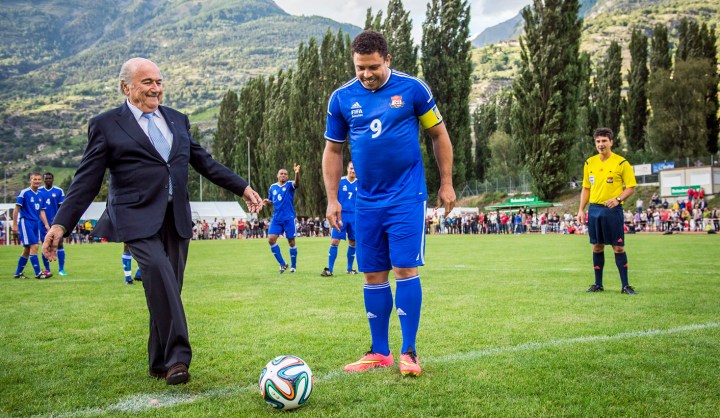Sport
Soccer: Four things FIFA can learn from cricket for TV review trials

Sepp Blatter has, very vaguely, suggested that football might be ready to embrace TV reviews. How exactly this will work is not yet clear, but ANTOINETTE MULLER has some suggestions for what FIFA can learn from cricket’s rendezvous with TV reviews.
FIFA president Sepp Blatter has announced that he’s keen on testing TV reviews to move football into the technology age. How these will work is not yet clear, but one thing’s for sure: it’s already something that divides opinion.
Blatter had the following to say about the possible integration of TV reviews: “They have the right in the half, twice or once, to challenge a refereeing decision, but only when the game is stopped.”
He went on, rather cryptically: “Then there must be a television monitor, but by the television company, and not by another referee. And then the referee and the coach – they will go…to look, and then the referee may change his mind, as is the case in tennis, for instance. It can only be done where there is television coverage of all the matches.”
That’s a pretty vague description. Nobody knows when or how it will actually happen, but adding technology to pro sport can only be a good thing, especially when the decision could influence the outcome. It also puts the officials under greater scrutiny for the quality of their officiating.
That said, the implementation will take time, but there’s a thing or two football can learn from cricket with its use of the Decision Review System.
Don’t let the players ask for reviews
This is still happening in cricket, but it’s a big talking point. While there is an argument for players asking for reviews in cricket (even though it’d be a better idea if they didn’t), they absolutely should not be given this responsibility in soccer. As it stands, it seems as if it will be up to the managers to “challenge” the decisions, so that’s a good start. Players don’t need the extra responsibility of being tasked with challenging a review, and because so much of football happens “in the moment”, those involved might have a warped perception of what happened. Managers and coaches do have a different view, but they are also often biased. Eventually, it would be far better to just opt for the rugby approach to the third-match official, where the man in the box is asked whether there is any reason that a try cannot be awarded.
Make sure those in charge actually know the rules
No, this is not a ruse for sexism – it simply means that everyone should be clear on, and agree on, the rules of the system. It doesn’t happen often, but once in a while, oddities crop up with these things, as in the case when Jacques Kallis was given out leg-before when he was appealed for as being not out. The risk of this sort of thing happening in football is far less likely and, since the process has not been cleared yet, it would be harsh to speculate. However, let’s assume that things like penalties will be something that can be “challenged”, it’s important that there is clear guidance on whether cards handed out to players will also form part of the reviews. For example, if a penalty is not awarded, and it should have been, does that also mean a red card can be dished out if, upon review, it becomes apparent that one should be served? Football’s review system will be far, far more nuanced than cricket or rugby’s, because of all the little intricacies involved – and for a system to work, it will be absolutely vital to make sure everyone is clear on the rules.
Keep trust in the officials
This is something that has troubled cricket. Umpires – and referees in football – are there to do a job. They all make mistakes in their jobs, but they should still be trusted enough to not always be doubted. If the distrust has evolved to the extent that nobody has faith in officials anymore, then remove them from their positions and hand it all over to robots or people in front of robots who aren’t on the field with a front-row seat to the action.
Once the format is decided, implement it across the board
Technology costs money and implementing it is expensive, but it’s important for this sort of thing to be uniform. Football’s technology is arguably cheaper to implement that cricket’s, but it should be used across the board by everyone. This helps in one of two ways. If it’s used in domestic leagues, it means that players who then play internationally won’t be left stumped when they are confronted with its use, and it also means it becomes more normalised far faster. Cricket is a much, much smaller sport than football, but there still hasn’t been a uniform implementation of the system -partly because some boards cannot afford it and partly because some boards are still against it. A lopsided implementation won’t do anyone any good. DM
Photo: FIFA President Joseph “Sepp” Blatter (L) and former Brazilian soccer player Ronaldo during the friendly football match for the anniversary of 100 years of Swiss football club FC Visp, in Viege, Switzerland, 23 August 2014. EPA/OLIVIER MAIRE


















 Become an Insider
Become an Insider